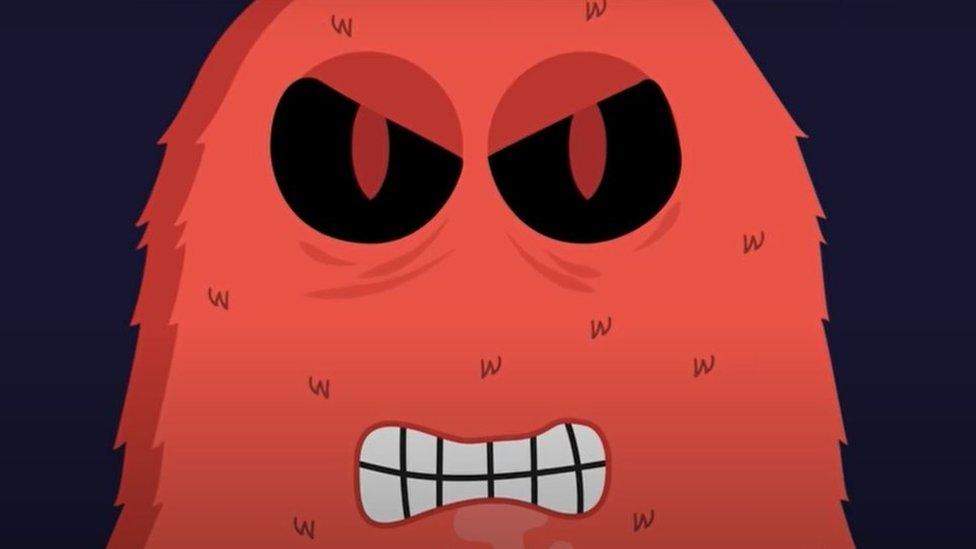Yousaf 'not surprised' JK Rowling posts are not criminal
- Published
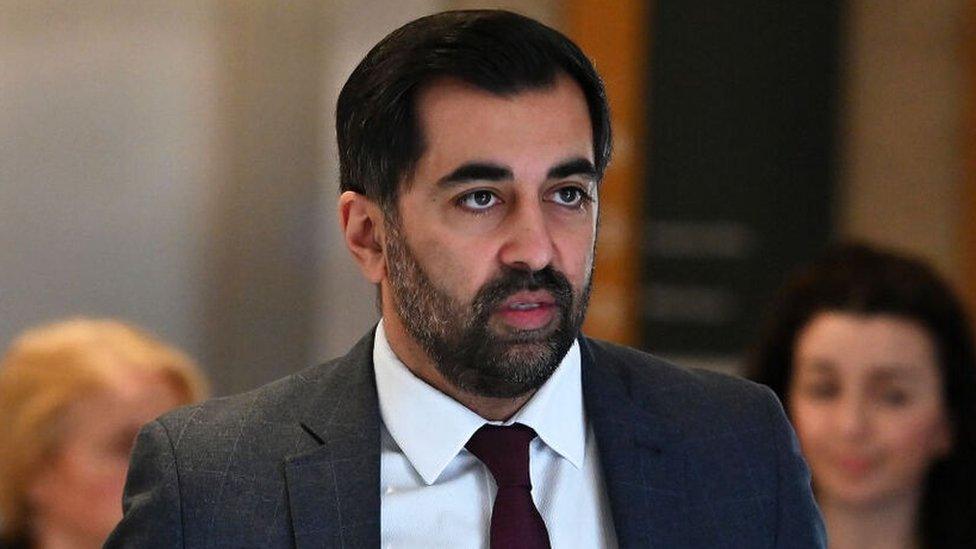
The first minister said there was a high threshold for criminality in the new law
Humza Yousaf said he was "not surprised" police had assessed JK Rowling's online posts challenging the new hate crime law to be non-criminal.
The Harry Potter author described several transgender women as men, including convicted prisoners, trans activists and other public figures.
The legislation creates a crime of "stirring up hatred" relating to protected characteristics.
But Police Scotland said no action would be taken against Ms Rowling.
The first minister said the Hate Crime and Public Order (Scotland) Act 2021, external "protects the most vulnerable and marginalised in our in society" while also safeguarding "freedom of expression and freedom of speech".
Mr Yousaf told BBC Scotland News: "Those new offences that have been created by the act have a very high threshold for criminality.
"The behaviour has to be threatening or abusive and intends to stir up hatred.
"So it doesn't deal with people just being offended or upset or insulted."
He said Ms Rowling's posts on X were a "perfect example of that".
The first minister added: "Anybody who read the act will not have been surprised at all that there's no arrests made.
"JK Rowling's tweets may well be offensive, upsetting and insulting to trans people.
"But it doesn't mean that they meet a threshold of criminality of being threatening or abusive and intending to stir up hatred."
Mr Yousaf said it was up to Police Scotland to decide how to deal with hate incidents.
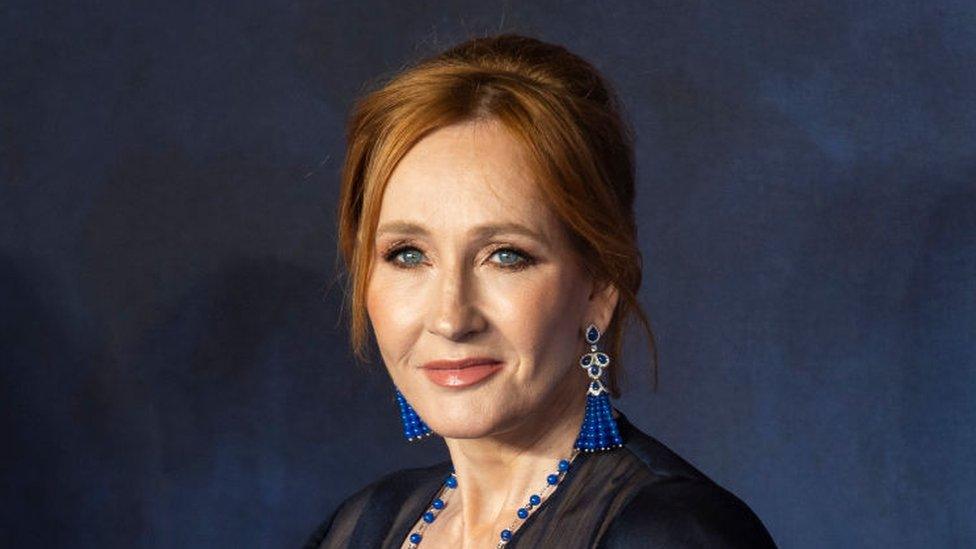
JK Rowling has criticised Scotland's new hate crime law
BBC understands the national force has received more than 3,000 hate crime reports since the new law was introduced on Monday.
A large number were about a 2020 speech by Mr Yousaf - then justice secretary - highlighting white people in prominent public roles.
However Mr Yousaf told BBC Scotland that the majority of "vexatious" complaints made about him "come from the far right."
"I'm not going to let them stop me from continuing to speak out about racism or talk about that fact that we need more diversity in public life," he said.
"That was the point I was making in the speech that's been referenced."
In relation to both Ms Rowling and the first minister's speech, a police spokesperson said: "The circumstances have been assessed and will not be recorded as a non-crime hate incident."
Last month Tory MSP Murdo Fraser threatened legal action against Police Scotland after the force logged a social media comment he made as a "hate incident".
And on Wednesday he criticised the force's response to the complaints against Ms Rowling and Mr Yousaf.
He said: "This decision means Police Scotland have not only breached their own policy on recording non-crime hate incidents, but now appear to be making it up as they go along."
Officers later concluded no crime had been committed by Mr Fraser.
TV journalist India Willoughby was among those named in Ms Rowling's social media comments.
She said Police Scotland had "bottled it" and she was "disappointed" that no action was being taken against Ms Rowling.
Ms Willoughby said it was "distressing to find myself in a list containing rapists and predators".
She told BBC Radio Scotland's Drivetime programme: "The hate crime bill says if you're in one those groups and something causes you fear or upset then it's a potential hate crime. I just don't see how this doesn't qualify.
"I get the impression that Police Scotland are actually scared because it's JK Rowling.
"Obviously she has a lot of clout, it would probably be an expensive case."
The broadcaster also criticised the SNP and said it had been left looking "really weak".
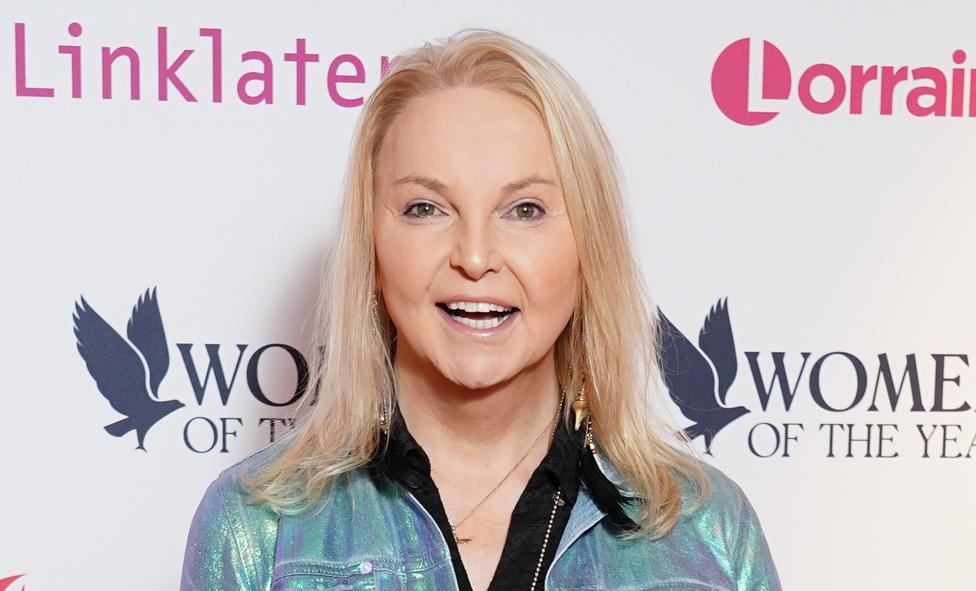
India Willoughby was disappointed that JK Rowling's comments were considered non-criminal
Ms Willoughby said she had experienced "deliberation provocation and deliberate targeting" through abusive social media messages since Ms Rowling published her comments on the new hate crime legislation.
"Let's remove the word 'trans' and consider any other minority like black or Jewish people," she said.
"If somebody out there was campaigning against another group and made a list which contained rapists and sex offenders and, in amongst them, included four innocent people from that group and deliberately misgendered them, I think that constitutes incitement. Why else would you be linking them?
"By putting four innocent trans people in a list of trans people which includes predators and rapists, she is trying to imply that trans people are dangerous and that has been the gist of her argument all along."
Explained: Why has Scotland’s new hate crime law proved controversial?
Following Ms Rowling's comments, Prime Minister Rishi Sunak said people should not be criminalised for stating simple facts on biology".
Mr Sunak would not be drawn on whether he supported her approach, but he added: "We should not be criminalising people saying common sense things about biological sex, clearly that isn't right.
"We have a proud tradition of free speech."
The Hate Crime Act creates a new crime of "stirring up hatred" relating to age, disability, religion, sexual orientation, transgender identity or being intersex.
The maximum penalty is a prison sentence of seven years.
A person commits an offence if they communicate material, or behave in a manner, "that a reasonable person would consider to be threatening or abusive," with the intention of stirring up hatred based on the protected characteristics.
Stirring up hatred based on race, colour, nationality or ethnicity was already illegal in Great Britain under the Public Order Act 1986 but, in an attempt to streamline the criminal law in Scotland, that too is now part of the Hate Crime Act.
- Published3 April 2024
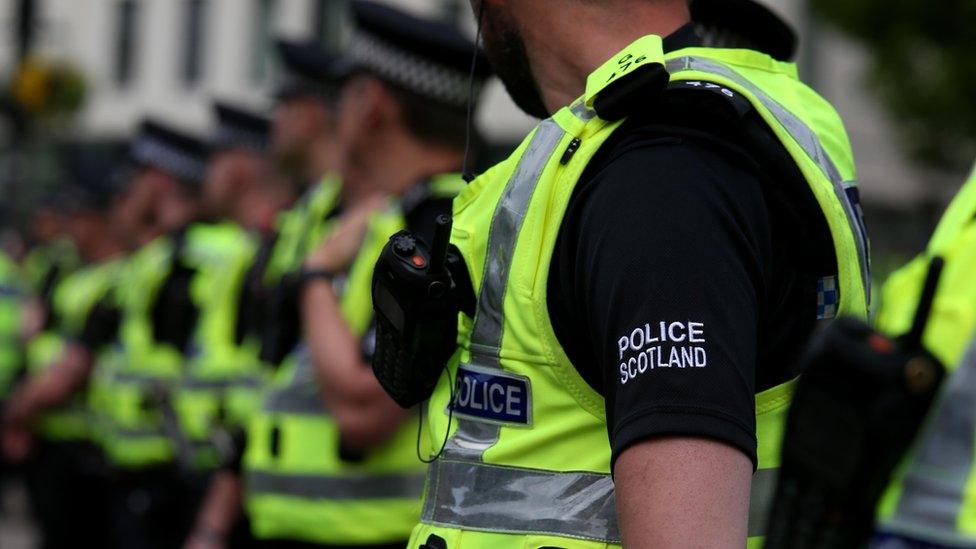
- Published2 April 2024
- Published1 April 2024
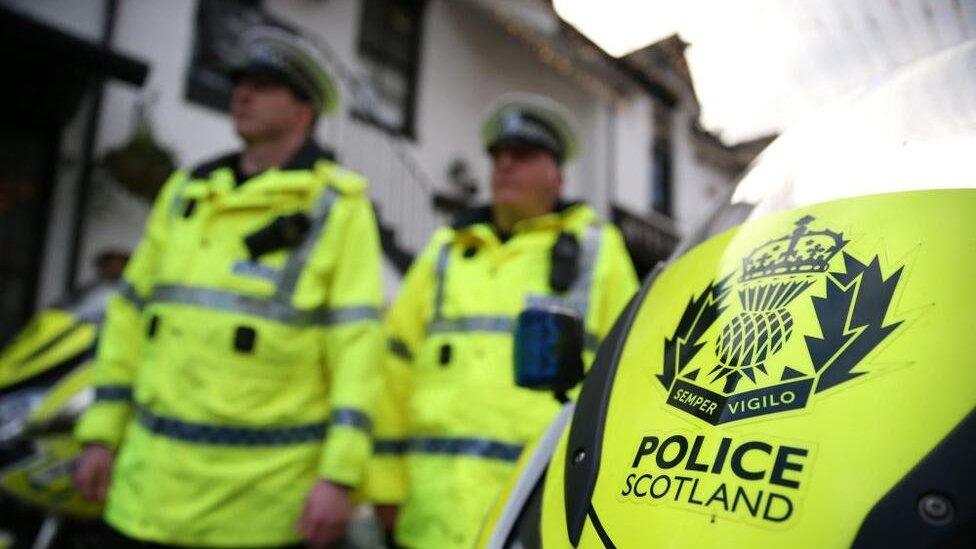
- Published14 March 2024
